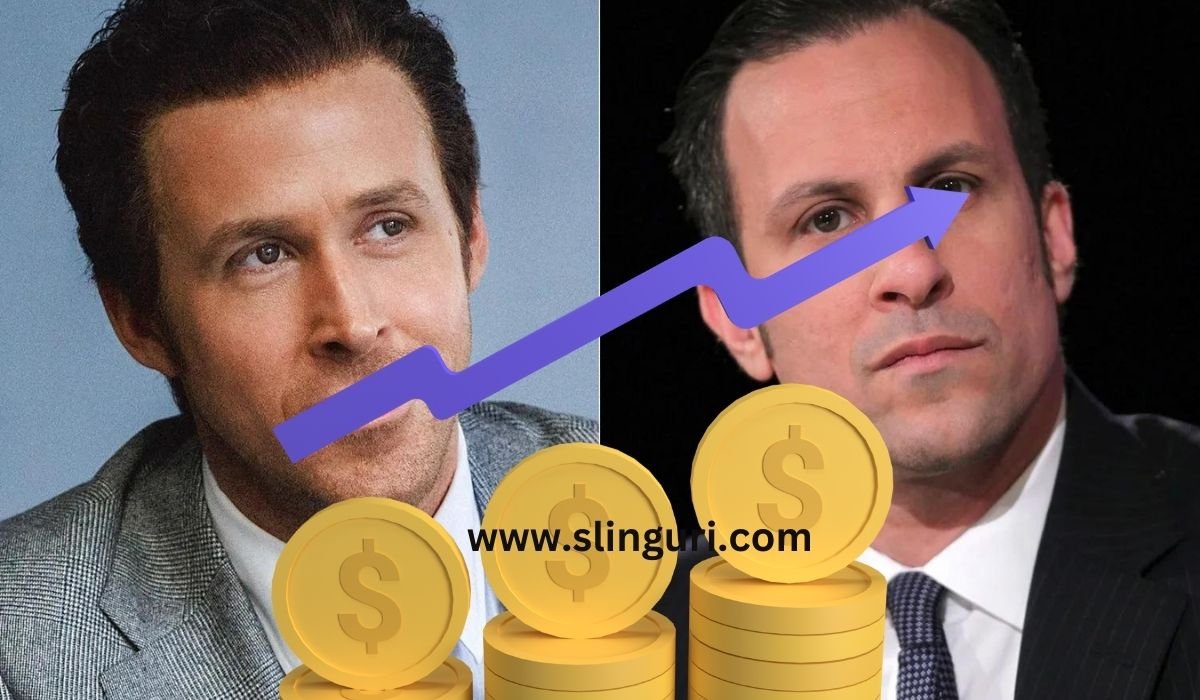The abstraction of Wall Street trader Greg Lippmann is portrayed by Ryan Gosling as Jared Vennett in the 2015 big-screen adaptation of Michael Lewis’s bestselling book on the topic. Lippmann was a Deutsche Bank trader who quickly understood that the housing market would collapse and made his fortune by betting on it. There is a kind of quality about characters like Vennett who reflect the financial speculation with great facility in identifying vulnerabilities in the market that others have missed. Just like Lippmann, Vennett made an incredible amount of money through his involvement with CDS in the housing market bubble. By using a life-life comparison of Jared Vennett and Greg Lippmann, this paper will continue to elaborate on the net worth, in relation to financial mechanisms he exploited on, contribution to the collapse of the housing market, and the greater impacts of his actions .
How Much Is Jared Vennett’s Net Worth?

Of course, no Jared Vennett exists in the real world although Greg Lippmann is the closest and was estimated to have raked in approximately as much money. A financial expert estimated that Lippmann’s net worth falls within any given range between $20 million and $50 million. This is mainly brought about by his role in the financial crisis and subsequent success afterward. He would identify vulnerabilities in the subprime mortgage market and profit by millions of dollars in commission, bonuses, and personal investments by operating on the weaknesses through credit default swaps.
From various sources, one can gauge Greg Lippmann’s worth ranging from $20 million to $50 million. All of these figures are base value for a salary in Deutsche Bank, personal investments he had made, and millions of dollars in bonuses for bringing billions of dollars into the bank’s coffers during the 2008 financial crisis.
Who is Greg Lippmann? The Real Jared Vennett
Greg Lippmann: The Early Years
The guy Greg Lippmann started his financial career long before the 2007-2008 financial crisis. He entered Deutsche Bank where he specialized in trading mortgage-backed securities (MBS) and credit default swaps (CDS). His style turned aggressive and innovative when starting to bet on super-risky financial products. His profile of skills has perfectly set for building a profitable business from the expanding bubble of the U.S. housing market at the beginning of the 2000s.
The Mortgage-Backed Securities Market
Mortgage-back securities a pool of home loans sold to investors as an example collateralize debt. If the borrower were making their mortgage payment, these securities were very profitable. The mid 2000s, however, witness many MBS fill with subprime mortgages-loans that being advance to borrowers whose credit is very bad. This created a kind of ticking time bomb, as default rates on these loans increased.
Lippmann had foreseen this failure and was in an excellent position to generate some profits by selling credit default swaps—essentially insurance policies against the default of these MBS. With the defaults shooting up, Lippmann and his investors made out like bandits.
The Profits of Lippmann in the Financial Crisis
The bet Greg Lippmann had placed on the housing bubble turned out to be highly profitable. Lippmann believe to have made more than $47 million in profits during the course of just a few years leading up to and through the financial crisis. The way he achieved this was by trading on the prospect of the subprime mortgage market crashing as well as to help hedge funds and institutional investors trade CDS, believing that the market had moved too far in one direction and was due for a reversion.
Greg Lippmann Estimated Income During Financial Crisis
| Year | Key Financial Role | Estimated Earnings (USD) |
|---|---|---|
| 2006 | Head of Mortgage Securities Trading | $7 million |
| 2007 | Peak of Housing Bubble | $15 million |
| 2008 | Collapse of Housing Market | $25 million |
| 2009-2010 | Post-Crisis CDS Profits | $17 million |
| Total | N/A | $47 million |
Role of CDS in Vennett’s Success Story
What are Credit Default Swaps?
A CDS is a financial derivative that basically functions as insurance on a bond or loan. If the issuer of the bond defaults, the seller of the CDS pays the buyer of the CDS. Lippmann and his protagonist Jared Vennett began to exploit the instrument when he started selling CDSs on mortgage-backed securities that he thought would default. He had a reason for doing so: that was the nature of the inherent risks subprime loans package into those securities.
How Vennett Was Paid on CDS
Jared Vennett and Greg Lippman’s character made huge amounts of money placing CDS deals for investors who were going to make a bet against the housing market. The CDS contracts allowed hedge funds and other large investors to make massive bets that the housing market was likely to implode. Here, through CDS deals, Vennett got paid on his personal wealth to accrue commissions and bonuses.
So, financial analysts assume the same traders such as Vennett (Lippmann) made millions in the commission from each trading CDS. Where Lippmann work, Deutsche Bank, supposedly brought billions from the deals, and the money Vennett made strictly link how those trades turn out well.
The Big Short and Jared Vennett’s Impact in Popular Finance
Film Animation of Vennett
Having been based on a bestseller by Michael Lewis, the movie narrates the story of some investors who predicted the 2008 financial collapse while betting against the housing market. He almost fully fictionalize his character, Jared Vennett, which base on Greg Lippmann; he outdid all that to make sure the message is driven home that CDS was the most crucial player in the financial meltdown.
As for the film itself, it talks about Vennett’s bold, blunt nature through high-risk trades he had participated in. Another such memorable scene in the film is when Vennett goes on to describe vulnerabilities in housing markets by using metaphors and graphics to describe complex financial instruments.
At the same time, it calls into question the ethical approach to dealing with people who will profit from economic disasters that negatively impact humanity. When Vennett (Lippmann) and his investors raked millions of dollars, they did so to the detriment of millions of Americans who lost their homes and retirement savings.
Financial Lessons by Jared Vennett in The Big Short
The story of Jared Vennett teaches the following financial lessons:
- Market Surveillance: Vennett was one of the few people in the market who were vigilant regarding the opportunities that existed for market vulnerability much ahead of most traders. He had information about the risk of subprime mortgages much before the “subprime train” derailed, leaving hundreds of traders in shambles and set himself to reap the rewards when the market came crashing down.
- Speculation and Risk: Vennett sure speculate from speculative investments. While speculations do pay off, they are a risk. Vennett bet against the stability of the U.S. housing market. His bet paid off but could turn out to highly disastrous had the market stabilize.
The ethical concern revolves around the role played by Vennett in enabling CDS trades. He may not have been the one to create the conditions that led to the bursting of the housing market bubble, but he benefited at the expense of others’ failure. In this there emerges a ground for asking if there would be a need for more duties of the professionals in finance with the responsibility to provide stability to the entire economy.
Macro Impact of the 2008 Financial Crisis: Net Worth and Wealth Accumulation
The Pop of Asset for Middle America
In the meantime, Jared Vennett and his real-life counterpart Greg Lippmann rake in the gold amidst the financial disasters, as the ordinary American was nearly blown away by a wipeout of savings and savings accounts and retirement accounts. Trillions of dollars of home equity testified to the vanishing value locked into savings and retirement accounts. Millions lost their homes to foreclosures, and millions lost their jobs as well.
The Federal Reserve report further showed that between 2007 and 2009, the net worth of U.S. households contracted by approximately $13 trillion. This loss mostly attribute to damage cause by the stock market collapse and the plummeting housing prices, all attributed to the subprime mortgage crisis.
Financial Effects the 2008 Financial Crisis Had on American Households
| Year | U.S. Household Net Worth (USD) | Change from Previous Year |
|---|---|---|
| 2007 | $66 trillion | – |
| 2008 | $52 trillion | -$14 trillion |
| 2009 | $53 trillion | +$1 trillion |
| 2010 | $56 trillion | +$3 trillion |
The Big Short Story of Jared Vennett: Is Profiting from Financial Disaster Ethical? Jared Vennett in the Big Short leaves one wondering whether or not it is ethical to make a profit from a financial disaster. Indeed, Jared Vennett resembles Greg Lippmann, one who, at the sight of the trainwreck, cashed out with millions from the meltdown. The fact that he could so well underscores the capability in finance but resonates with something deep within about the proportion in which one gains match by others’ losses.
Regulation and Responsibility
Another of the problems revealed by the 2008 financial crisis is that there was not much tracking or regulation of the derivatives market. Credit default swaps are the unregulated product, and someone such as Vennett could place enormous, wildly speculative wagers against virtually no oversight. It took lawmakers years after the crisis to try to deal with the problem by passing the Dodd-Frank Act, the law that suppose to bring much more openness and oversight to these markets.
Relevant Post- Crisis Financial Regulation
| Legislation | Year Passed | Key Provisions |
|---|---|---|
| Dodd-Frank Act | 2010 | Increased oversight of financial institutions and derivatives |
| Volcker Rule | 2010 | Restricted proprietary trading by banks |
| Basel III | 2010 | Strengthened global banking regulations |
All this, though are arguments on who should be first in ensuring that stable markets and fair prices stay at the point: traders or financial institutions. The Big Short depicts Jared Vennett’s sight into financial speculation: high stakes and the propensity to make enormous profits with serious ethical considerations therewith.
Also Rad More:Big unit of cheese nyt
The Jared Vennett Legacy outside America: Popular Culture and Finance: The Cultural Significance of The Big Short
The Big Short has itself become the cultural focal point of often mystifying machinations behind the 2008 financial crisis. To understand credit default swaps and mortgage-backed securities, one had to view this movie and its protagonists, such as Jared Vennett; its perspective has replaced that of nearly any other film, one that either conveniently forgot or obscured the details of the financial system that was completely unresponsive to traditional capital flow mechanisms when the crisis hit.
Vennett, as seen in the movie: loud mouthed, self-assured-a symbol of the attitude by which the financial sector operated in the years leading up to the crisis.
Thanks to accessible explanations and the dramatized depiction of real-life events, The Big Short helps many viewers get through the financial mechanisms that led to one of the greatest economic downturns in modern history.
Vennett as a Symbol of Financial Power and Risk

Jared Vennett is more than a film persona. He epitomizes the power and danger of high finance speculation. His success in the film and Lippmann’s real success manifests the potential in few’s ability to make great sums of money from those vulnerabilities they happen to understand.
However, Vennett’s story is also a warning story. The payouts for those who make it in finance are enormous, but so are the risks, and a failure can have consequences that affect the worldwide economy.
FAQs regarding Jared Vennett’s Net Worth
How much is Jared Vennett worth?
Since Jared Vennett is a fictional character, his net worth cannot compute. However, his real counterpart Greg Lippmann believe to have a net worth ranging from $20 million to $50 million and all that money has originated from his actions during the 2008 financial crisis.
Is Jared Vennett a real character?
Yes, Jared Vennett was based on Greg Lippmann, an ex Deutsche Bank trader and one of the most important gurus of betting against the U.S. housing market at the moment of the financial crisis.
How much cash did Greg Lippman make through the financial crisis?
Greg Lippmann is believed to have amassed more than $47 million into his pockets during the financial crisis, from commissions, bonuses, as well as personal investments tied to credit default swaps.
What is learned from Jared Vennett financially?
The history of Jared Vennett is an example about weaknesses in markets, risks associat with speculative investment, and how personal gains would built on crises economies of large scales.
How Accurate is The Big Short when it relates it to Jared Vennett
Although The Big Short is a dramatized version of reality, Jared Vennett is pretty close to the actual rendition of Greg Lippman’s role in the light of the financial crisis. He simplifies credit default swap to a three-line summary, but the underlying story is factual.
What legacy does Jared Vennett and financial crisis leave?
Legacy Left About Jared Vennett’s and, accordingly, Greg Lippmann’s is such of financial power, risk, and controversy. Activities they conducted in times of the financial crisis opened the doors to releasing the ethical issues of profit from the collapse of the economy and superb amounts that could generat base on knowledge of weaknesses in the market.
Conclusion
Jared Vennett, though a fictional entity, till date, has been an important character in the recent financial history of the world. The Big Short opens one’s eyes to the high finance world of Wall Street where fortunes made and lost speculating on the back of financial trends. And with Greg Lippmann playing out as his real-life counterpart, we learn that market dynamics lead to the massive gain in finance, but at the steep cost to society.
Jared Vennett is a legacy of great strength to the powers of the traders and, at the same time, cautioning one on the risks and responsibilities there are in the make-believe financial speculation. He can be a prophet who sees this coming ahead or the villain who is going to make money out of it, but the role Jared Vennett played in the financial meltdown of 2008 will forever remain a matter of debate in understanding the ins and outs of contemporary finance.
Also Read More:Alex Aksenchik

